
On the second anniversary of the 7 October attacks on Israel, with Middle East peace talks underway, BBC international editor Jeremy Bowen asked, ‘Will Israel and Hamas seize the chance to end the war?’
An honest, insightful analyst would have addressed the issue differently. First and foremost, the narrative framing of a ‘war’ would have been replaced by the reality: ‘genocide’. In fact, nowhere in his 1800-word article does Bowen even mention the word. The omission is both glaring and shameful.
Recall that it is now accepted by the UN Commission of Inquiry on the occupied Palestinian territory, along with major human rights organizations, including Israel’s own B’Tselem, and genocide scholars, among whom are Israeli experts, that Israel is committing genocide in Gaza.
In a new report published on the second anniversary of the 7 October atrocities, B’Tselem noted that the Hamas attacks had acted as a ‘trigger’ for Israel’s genocide of the Palestinians: ‘an escalation rooted in decades of apartheid and occupation.’
Bowen pointed to the trauma that Hamas inflicted on Israelis when the 7 October attacks ‘killed around 1,200 people, mostly Israeli civilians, and 251 were taken hostage.’ As we have repeatedly said, Hamas and other Palestinians did indeed commit major war crimes in attacking and killing unarmed Israeli civilians. But Bowen’s article makes no mention of the trauma inflicted on the Palestinians by a brutal Israeli state over many decades.
Nor does Bowen point out that many Israeli civilians were killed by Israeli forces under the implementation of the so-called Hannibal Directive (see our 12 February 2025 media alert) to prevent Israeli hostages from being used as bargaining tools by Hamas.
An investigation published by the website Electronic Intifada on the first anniversary of the 7 October attacks concluded that Israeli forces, including tanks and helicopters, may have killed hundreds of their own people. Al Jazeera reported that as many as 28 Israeli Apache helicopters expended all their ammunition and had to be reloaded.
Bowen goes on to say that Hamas has ‘a charter that seeks to destroy Israel’. This is a misleading claim that has been repeated endlessly for years across the ‘mainstream’ media. Noam Chomsky was asked about it in an interview with Amy Goodman of Democracy Now! in 2014. He responded:
‘First of all, [the] Hamas charter means practically nothing. The only people who pay attention to it are Israeli propagandists, who love it. It was a charter put together by a small group of people under siege, under attack in 1988. And it’s essentially meaningless. There are charters that mean something, but they’re not talked about. So, for example, the electoral program of Israel’s governing party, Likud, states explicitly that there can never be a Palestinian state west of the Jordan River. And they not only state it in their charter, that’s a call for the destruction of Palestine, an explicit call for it. And they don’t only have it in their charter, you know, their electoral program, but they implement it. That’s quite different from the Hamas charter.’
An updated Hamas charter published in 2017 made clear that their opposition was to a Zionist, ethnonationalist state in which Jews have greater human rights than other citizens: in other words, a system of apartheid. Human Rights Watch, Amnesty International, B’Tselem and many other informed sources have declared that Israel is indeed an apartheid state.
A ‘Conflict Between Arabs And Jews’?
Recently, the right-wing, former Sunday Times editor Andrew Neil challenged Ben Jamal, director of the UK-based Palestine Solidarity Campaign, in a Times Radio interview on whether Jamal approved of the chant, ‘From the river to the sea, Palestine will be free’. Surely that is a call, claimed Neil, for the destruction of Israel?
Jamal responded that as part of a real Middle East peace settlement, there cannot be any state that practices apartheid. He made the valid point that the state of South Africa still exists, just not in a form that practices apartheid.
So, Neil went on: ‘Israel would cease to be a Jewish state’.
Jamal’s answer was a model of clarity:
‘It would cease to be a Jewish state if what you mean by that, and this is what Benjamin Netanyahu means by that, [is] a state which can privilege the rights of Jewish people above Palestinians. No state has the right to do that; in the same way, South Africa did not have the right to privilege the rights of white South Africans above black South Africans. It’s not that difficult.’
Bowen could have included informed commentary along those lines. And he is surely sufficiently experienced and knowledgeable to be aware of the point. But instead he chose to platform Israeli propaganda about Hamas ‘seeking to destroy Israel’.
The BBC international editor went on to say that:
‘There is a chance to get to a ceasefire that could lead to the end of the most destructive and bloody war in well over a century of conflict between Arabs and Jews.’
This formulation is a classic example of the imposed ignorance that the BBC foists upon its audiences. Again, Bowen must surely have a better understanding of the relevant history. It would indeed require some unpacking for a general audience. But to categorise the betrayal of Palestinians by the British under the 1917 Balfour declaration, namely to back a new Jewish state on Palestinian territory as demanded by Zionists, and the founding of Israel in 1948, which led to the Nakba (‘Catastrophe’) and the ethnic cleansing of 800,000 Palestinians, as a ‘conflict between Arabs and Jews’ does a gross disservice to the truth. There is not the slightest hint from Bowen that Israel is a settler-colonial state acting as an extension of US-led Western power in the Middle East for geostrategic reasons.
In a short book published last year, Israeli historian Ilan Pappe wrote that:
‘It took two years – between 1915 and 1917 – for the Zionist lobby to persuade the British government that a Jewish Palestine would be a strategic asset for the Empire. What tipped the scales for Britain was the realization that Palestine could be crucial in defending the Suez Canal in Egypt. A friendly governmental regime there was hence vital. So the imperialists wanted Palestine for strategic reasons, Christian evangelicals wanted it to help bring about the end times, and the Jewish leadership wanted it as a safe haven for the Jews of Russia, as well as a means of forcefully modernising Judaism. To survive the new epoch, they thought, Jewishness had to be a nationality, not a religion.’
(Ilan Pappe, ‘A Very Short History of the Israel-Palestine Conflict’, Oneworld, London, 2024, p. 13)
The Threat Of ‘Peace Offensives’
Chomsky has often pointed out that, following the end of the Second World War, when the US emerged as the main victor and the world’s most powerful economy, Washington has provided virtually unwavering support for Israel because it functions as a strategic and commercial asset that helps to maintain American power and dominance in the Middle East. This is rarely pointed out by Western news media because, as Chomsky noted:
‘the mainstream tends to be a herd of independent minds marching in support of state power.’
In 2014, Chomsky said:
‘Hamas leaders have repeatedly made it clear that Hamas would accept a two-state settlement in accord with the international consensus that the U.S. and Israel have blocked for 40 years.’
In other words, Hamas has declared its readiness to negotiate a long-term ceasefire with the Jewish state within its pre-1967 borders. But Israel has always rejected the offer, just as it rejected the Arab League peace plan of 2002, and just as it has always rejected the international consensus for a peaceful solution in the Middle East.
Why? Because the threat of such ‘peace offensives’ would involve unacceptable concessions and compromises by Israel. Israeli writer Amos Elon has written of the ‘panic and unease among our political leadership’ caused by Arab peace proposals. (Cited, Noam Chomsky, ‘Fateful Triangle’, Pluto Press, London, 1999, p.75)
The Palestinians are seen as an obstacle by Israel’s leaders; an irritant to be subjugated or even removed. Chomsky commented:
‘Traditionally over the years, Israel has sought to crush any resistance to its programs of takeover of the parts of Palestine it regards as valuable, while eliminating any hope for the indigenous population to have a decent existence enjoying national rights.’
Try to find the above points being made in a BBC article or news broadcast by Bowen or any other BBC journalist. When do they ever explain that it is Israel who repeatedly breaks ceasefires? When do they ever report that there is a long history of Israel, with US connivance, repeatedly blocking moves towards a just and genuine peace in the Middle East?
Atrocity Propaganda
In the two years since the 7 October attacks on Israel, the US government has spent $21.7 billion on military aid to Israel, according to analyst William D. Hartung, a senior research fellow at the Quincy Institute, a foreign policy think tank based in Washington, DC. This figure does not include the tens of billions of dollars in arms sales agreements that have been committed for weapons and services that will be paid for and delivered in the years to come.
To his credit, but without pointing to any such relevant figures, Bowen did observe in his online piece:
‘Israel is dependent on the United States. The US has been a full partner in the war. Without American help, Israel could not have attacked Gaza with such ruthless and prolonged force. Most of its weapons are supplied by the US, which also provides political and diplomatic protection, vetoing multiple resolutions in the UN Security Council that were intended to pressure Israel to stop.’
But nowhere in Bowen’s article, nor anywhere else on the BBC, to our knowledge, has the journalist ever exposed the many Israeli lies and deceptions around 7 October. As the Canadian physician, trauma expert, and Holocaust survivor Dr Gabor Maté explained in a public talk last year:
‘There were no babies in ovens… No mass rapes.’
There were also no ‘beheaded babies’, despite Israeli claims of 40 beheaded babies and toddlers; claims that were credulously plastered across the front page of virtually every UK newspaper.
Electronic Intifada (EI) has provided numerous examples of Israeli falsehoods in a thread on X, which they introduced with these words:
‘On 7 October 2023, Israel began spreading atrocity propaganda — rapes, burned babies, family massacres. But a big share of deaths that day were by Israeli fire. From the start, EI exposed these lies while mainstream media spread them. Here are some of our key investigations’
One of the crucial observations included by EI in their thread is that in November 2023, Israeli air force colonel Nof Erez confirmed to a Hebrew-only podcast that Israel had targeted its own people on 7 October, calling it a ‘mass Hannibal’. That same month, Yossi Landau, the Jewish extremist who concocted some of Israel’s worst atrocity propaganda, admitted that his story about Hamas executing children was untrue.
Israel and its supporters in the media frequently made unverified claims of ‘mass rape’ by Hamas on 7 October. But, as EI noted in December 2023:
‘Despite blanket coverage, Israel does not claim to have identified any specific victim of such crimes, nor produced any videos or forensic evidence corroborating that they took place.’
In a livestreamed video, a team from EI analyzed this propaganda campaign, arguing that it was ‘being fronted by operatives close to the office of Israeli Prime Minister Benjamin Netanyahu.’
EI added:
‘this is a deceptive campaign based not on evidence but emotional manipulation, outlandish claims, distortion, and an appeal to racist notions that Palestinians are inherently violent and cruel.
‘It fits in with a long history of colonizers portraying colonized or enslaved people as savage brutes predisposed to sexual violence against white or settler women.’
In July 2025, an article appeared in the Sunday Times claiming that ‘new witnesses’ had come forward, backing the narrative that ‘sexual violence was rife’ on 7 October. BBC News also covered the story with the headline, ‘Hamas used sexual violence as part of “genocidal strategy”, Israeli experts say’.
However, experienced journalist and filmmaker Richard Sanders countered:
‘For our Al Jazeera Investigative Unit film “October 7”, we explored the issue of rape extremely carefully and concluded there was simply no evidence to support the claim that it was widespread and systematic. This new report appears to present no new, tangible evidence. The fact that one of the people behind it is the former chief military prosecutor of the Israeli army should set huge alarm bells ringing. Since Oct 7, 2023, if there is one thing we have learned, it is that Israeli claims about the behavior of Palestinians should be treated with extreme skepticism.’
Closing Comments
Why have the BBC’s international editor and his BBC colleagues buried so many of the truths about 7 October; in fact, actively promoted Israeli lies and deceptions? As ever, the public has to rely on ‘alternative’ media such as Electronic Intifada and Double Down News for the truth, such as this excellent film, ‘What Really Happened on October 7’, presented by Sanders.
When Greta Thunberg was released from an Israeli prison, after taking part in the Gaza Sumud Flotilla, which was illegally intercepted in international waters by Israeli forces and the flotilla participants illegally taken into custody, her first public words were:
‘This genocide is being enabled and fuelled by our own governments, our institutions, our media, and companies. It is our responsibility to end that complicity.’
She is right.
DC
The post
Blinkered Bowen first appeared on
Dissident Voice.
This post was originally published on Dissident Voice.
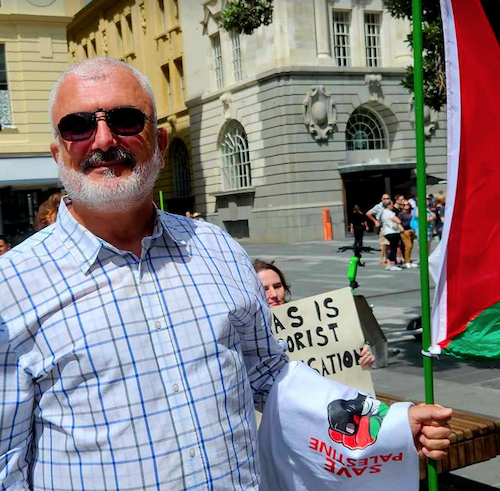
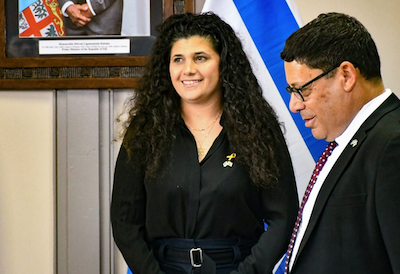
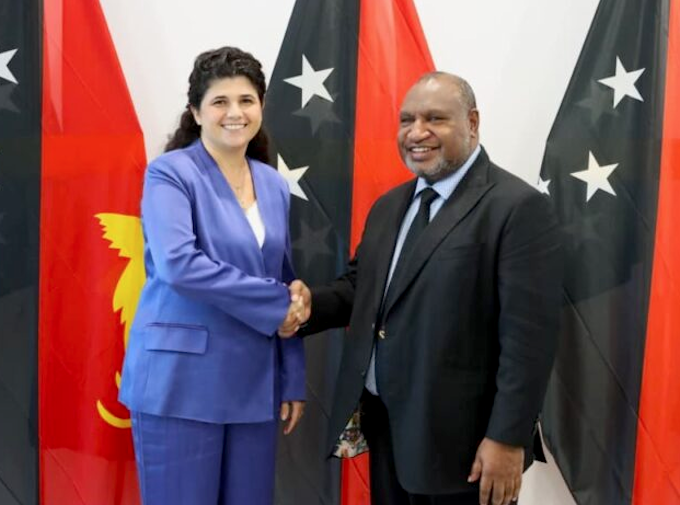




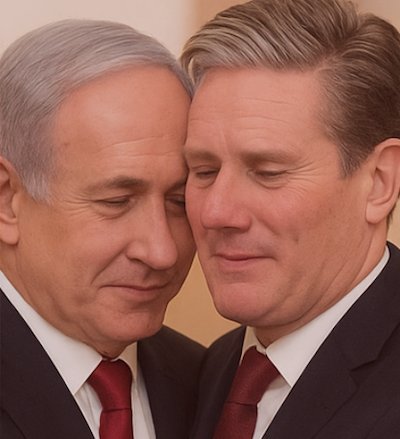
 (@OnlinePalEng)
(@OnlinePalEng) 




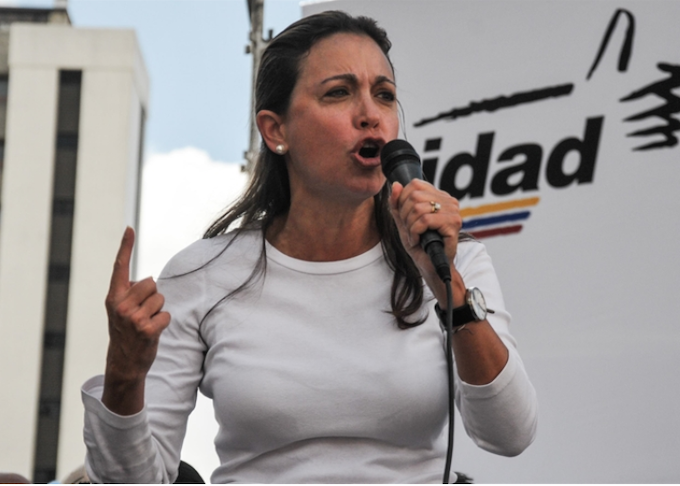
 : A number of Australian journalists have been targeted, harassed, and censored by lobby groups for reporting critical of Israel’s war on Gaza.
: A number of Australian journalists have been targeted, harassed, and censored by lobby groups for reporting critical of Israel’s war on Gaza. 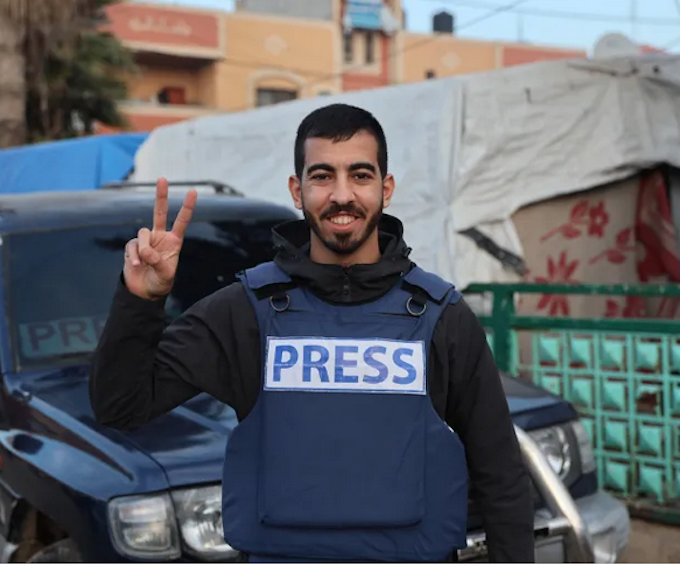
 LIVE updates:
LIVE updates: 
